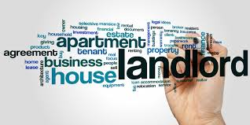The rental market is booming thanks to millennial renters and baby boomers who want to escape the hassle of home ownership. Whether you’re investing in property as a source of income or as a means to fund your retirement, there are certain things that every landlord should know. This article includes tips on choosing the right rental property location, renting to the right type of tenant and more.

1. Treat your rentals like a business.
As a landlord, you must treat your properties like the investments they are. This means conducting regular inspections, keeping accurate records and screening tenants thoroughly. It also means being prepared for worst-case scenarios, such as having an emergency fund set aside for repairs and vacancies.
2. Be prepared to deal with legal issues.
Landlords face a lot of legal issues, from security deposits to evictions and liability. It’s best to avoid legal issues by putting everything in writing, performing thorough background checks, educating yourself on local landlord-tenant laws and ensuring your property is maintained and safe.
3. Have a plan for maintenance.
If you’re not going to be available for your property, have a contractor in place to perform routine repairs and maintenance. This will keep your tenants happy and prevent any unexpected problems. If you’re not familiar with the plumbing, electrical or heating systems, make sure to hire a professional who can ensure they’re safe for tenants before you start renting out your property. For advice from Letting Agents Cheltenham, visit Me and You Estate Agents

4. Price your rental property correctly.
Before you put your property on the market, decide how much to charge in rent and what your rental will include, if anything, such as utilities, furnishings or parking spaces. If you’re unsure how to price your rental, ask nearby landlords for advice and check out what comparable rentals are charging in the area.
- Make it easy for your tenants to contact you.
Tenants will appreciate that you provide them with the necessary information and documentation in an organised fashion so they can reach out to you easily. For example, sending out welcome letters with information about the property and how to pay rent online makes it easy for them to get started.
6. Establish a good relationship with your tenants.
Creating a great rapport with your tenants will help you manage conflict resolution and maintenance requests effectively, which will ultimately benefit your rental business. Make sure you take the time to meet with your tenants in person, respond to emails quickly and be transparent when dealing with renters.
